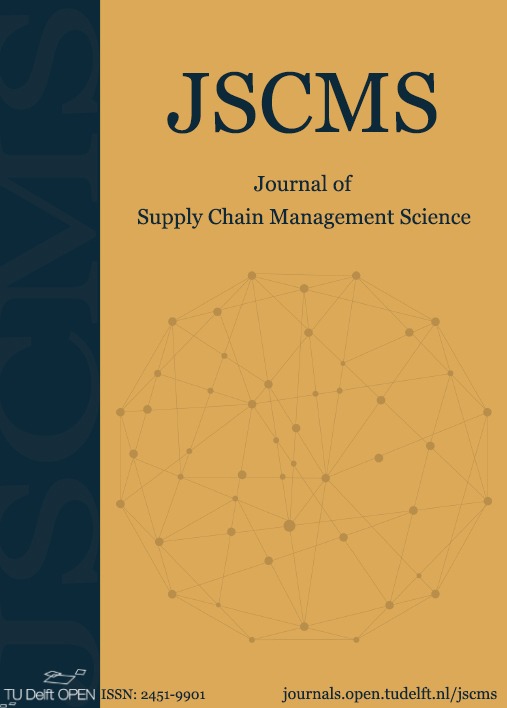A systematic review of multi-objective optimization applications in reverse logistics
DOI:
https://doi.org/10.18757/jscms.2022.6177Abstract
Reverse logistics (RL) have received the attention of the practitioners and researchers of the fields of supply chain and logistics due to, inter alia, the increase in public awareness, boundless waste generation, and environmental issues. To formulate RL issues, multi-objective decision-making (MODM) techniques are of the most practical approaches. MODM methods refer to an optimization problem with multiple objectives that usually conflict with each other and must be satisfied simultaneously. However, no literature review had yet undertaken a comprehensive systematic review of the utilization of MODM methods in RL. Therefore, 205 relevant papers published in scientific journals are considered and investigated from descriptive and technical content dimensions in this paper. The results clearly illustrate the quantitative increase in the number of papers published in this field over the last 20 years. This increase depicts that the researchers' focus on this field has been increasing in the last decade. Content analysis on the main focus areas, case study sector, solution methodology, uncertainty modeling, period(s), product(s), and numerous objectives that these 205 papers considered in their study helped to visualize the current state of this field and reveal research gaps and introduce future directions. Finally, some potential topics are provided based on the results that cover all reverse logistics activities and also content analysis categories.
Downloads
Published
Issue
Section
License
Copyright (c) 2022 Journal of Supply Chain Management Science

This work is licensed under a Creative Commons Attribution 4.0 International License.
JSCMS is licensed under a Creative Commons Attribution 4.0 International (CC BY 4.0) licence. The license means that anyone is free to share (to copy, distribute, and transmit the work), to remix (to adapt the work) under the following conditions:
- The original authors must be given credit
- For any reuse or distribution, it must be made clear to others what the license terms of this work are
- Any of these conditions can be waived if the copyright holders give permission
- Nothing in this license impairs or restricts the author's moral rights



